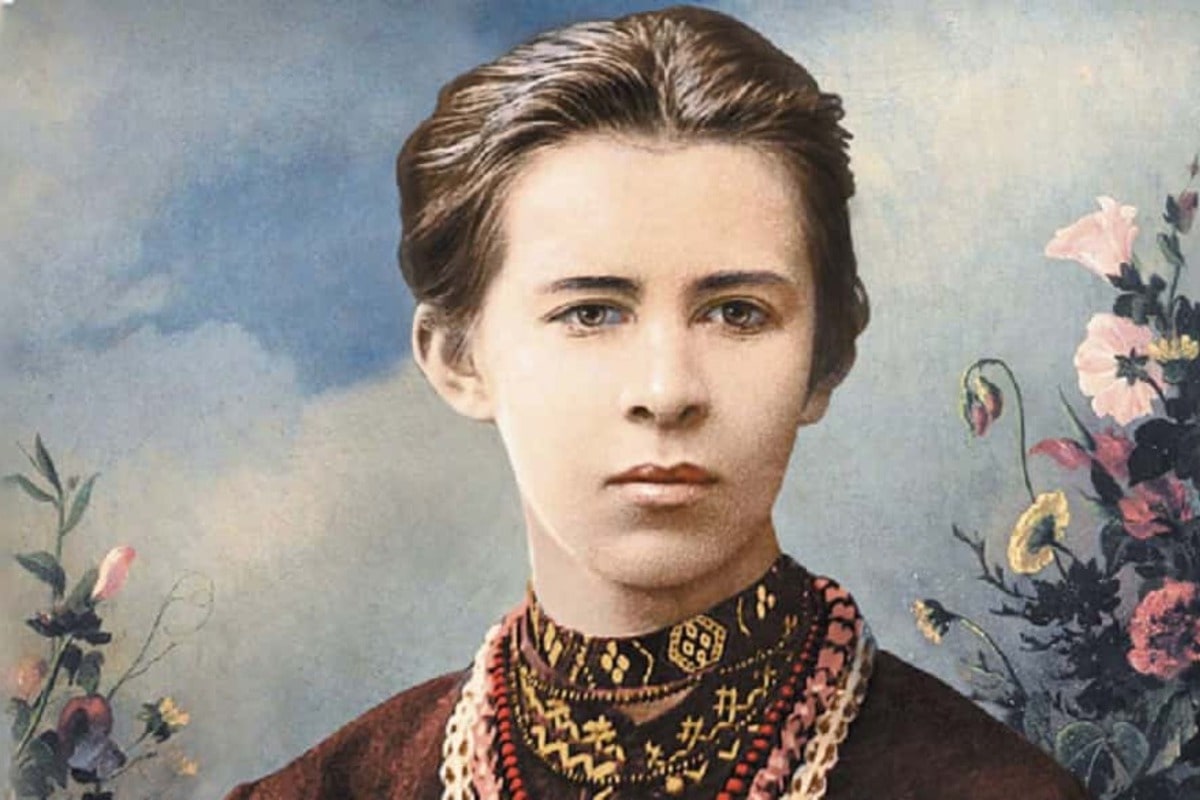Lesya Ukrainka is one of the most prominent figures in Ukrainian literature, a symbol of inner strength, intellectual brilliance, and national identity. Her life and work demonstrate remarkable courage, philosophical depth, and unwavering dedication to culture and freedom. She was not only a poet, but also a dramatist, translator, publicist, and civic activist. The following interesting facts will help you discover the true scope of her legacy. You may not know how profoundly she influenced Ukrainian thought, literature, and the broader cultural sphere.
- Her real name was Larysa Petrivna Kosach. She adopted the pen name Lesya Ukrainka at the age of 13 to protect her family from political persecution due to the anti-imperial nature of her writings. That name became one of the most recognizable in Ukrainian cultural history. It embodies both national consciousness and the strength of spirit.
- She started writing very young — her first poem was composed when she was only nine years old. By the age of twelve, she had mastered Ancient Greek, and later studied Latin, French, German, English, Italian, Polish, and Russian. This allowed her to not only translate works from other languages but to deeply understand global literary traditions. Her level of education and erudition was extraordinary.
- At the age of ten, she was diagnosed with tuberculosis of the bones, which caused lifelong pain and limited mobility. As a result, she couldn’t attend regular school but received an outstanding home education. Despite her illness, she remained intellectually active, traveled extensively, and pursued her writing with resilience. Her perseverance continues to inspire generations.
- Her mother was the renowned writer and feminist Olha Kosach (pen name Olena Pchilka), and her uncle was the scholar and activist Mykhailo Drahomanov. From them, Lesya inherited a love for knowledge, literature, and freedom of thought. She was raised in a family that nurtured her intellectual and national consciousness. This environment shaped her bold and independent spirit.
- Lesya Ukrainka translated works by many major world authors including Heine, Byron, Homer, Dante, Hugo, Mickiewicz, and others. She viewed translation as a way to enrich Ukrainian culture and connect it to the global literary canon. Her translations are praised for their accuracy, literary style, and insight. They also played a vital role in the development of the Ukrainian literary language.
- She authored over 270 poems, approximately 20 plays, and numerous essays and journalistic texts. Her philosophical and historical dramas such as The Forest Song, Cassandra, The Orgy, and The Noblewoman introduced new dimensions to Ukrainian theatre. Her works explore themes of power, betrayal, liberty, identity, and inner struggle. She was unafraid to raise complex, existential questions.
- Lesya Ukrainka was an outspoken feminist and advocate for women’s rights. Her female characters are often portrayed as strong, independent, and intellectually empowered. She believed women should have equal access to education, cultural participation, and political life. Her feminist stance was progressive and courageous for her time.
- Throughout her life, she traveled to and lived in various places including Crimea, the Caucasus, Egypt, Italy, Austria, and Switzerland for medical treatment and inspiration. These journeys broadened her worldview and provided rich material for her writing. She interacted with European intellectuals and maintained ties with the Ukrainian diaspora. Her international experience added depth to her literary perspective.
- In 1907, she married Klyment Kvitka, a musicologist and ethnographer. Their marriage was based on mutual respect and intellectual companionship. Kvitka supported her creative work and cared for her during times of illness. Their relationship dispels the myth that she lived in isolation.
- Her works were frequently censored by the Russian imperial authorities. Many manuscripts were banned or lost, and others were published abroad or circulated secretly. She never compromised her beliefs and continued to speak the truth through her writing. Her voice was a powerful tool of resistance and moral clarity.
- Lesya Ukrainka died at the age of just 42 in the Georgian town of Surami. Despite her short life, she left behind a vast and lasting literary legacy. She is buried in Kyiv at the Baikove Cemetery. Her grave remains a site of tribute and reflection.
- Her portrait appears on the 200-hryvnia banknote, and many theatres, schools, libraries, and streets are named in her honor. In 2021, on the 150th anniversary of her birth, Ukraine held numerous cultural and academic events to celebrate her life and work. She is recognized as one of the most influential women in Ukrainian history. Her name continues to resonate across generations.
These fascinating facts about Lesya Ukrainka reveal a thinker, reformer, and citizen of the world — not just a poet. Her life is a story of defiance, intellect, and moral strength. You may not have known that her contribution extends far beyond literature and shaped an entire era of national awakening. She remains a beacon of dignity, resistance, and creative brilliance.





